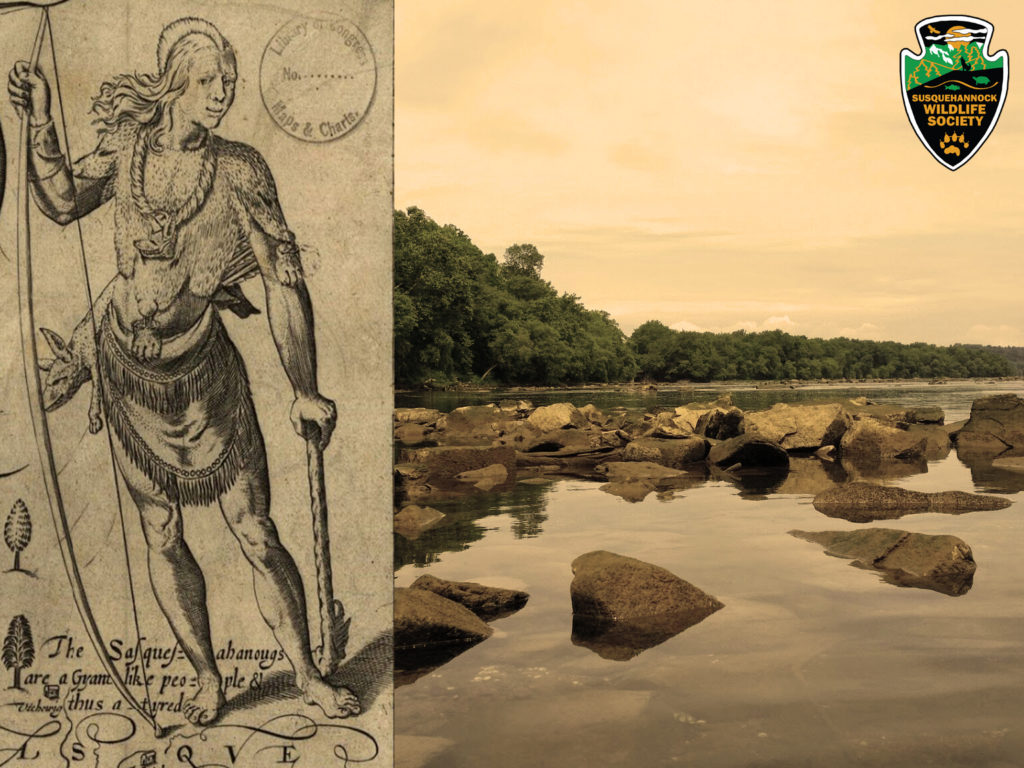
Our Susquehannock name pays tribute to the indigenous people who once inhabited these life giving lands that border the Susquehanna river and its watershed. These “people of the muddy river” as they were called, had a bond with wildlife and the environment that was of a spiritual nature. This land and all that was found in it were critical to their survival and they felt it was their duty to protect it and treat it with the reverence it deserved. We, as an organization, hope to carry on that legacy of those protecting the “muddy river” and reignite that bond between humans and nature that has often get forgotten as our culture continues to adapt to the modern era.
We can’t help but see the echoes of this now extinct tribe as we travel through this greatly altered landscape. We see places they lived and depended on for farming, shelter and hunting; following ancient migrations of fish and mammals along our mighty river and its tributaries. Sometimes we find the tools that they created or see pictorial messages etched in stone created by perhaps even earlier inhabitants. Many large and significant species that they knew such as wolves, cougars, bison and elk are long gone and we see an out of balance ecosystem that is struggling in many ways because of it. We as humans are now responsible to some degree for creating balance and managing our ecosystems when our effects have created too much disturbance for them to function naturally. It is a difficult job but one we can all come together in a variety of ways and work towards for the mutual benefit of all.
It is our hope that if we revere our lost people and wildlife of this land we may learn to cherish what remains and learn lessons from the past. We seek a future where, with our community’s support, we may protect and restore these special places and the incredible life that calls them home for future generations to enjoy, passing down the proud duty of being their caretaker for centuries to come.


